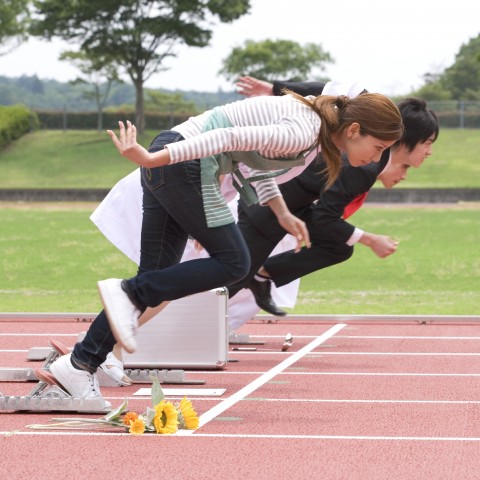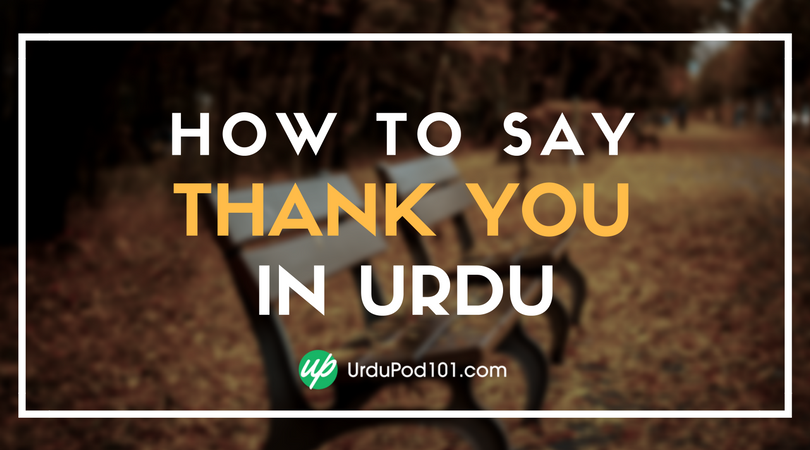
There’s a lot to be said for traditional language learning methods. But it can be argued that one of the best ways to learn a new language follows a slightly different path: picking up the most commonly used phrases, apart from grammar and vocabulary words. This is one of the fastest, easiest, and most effective ways to master the art of communication in any language—including Urdu!
Multiple factors contribute to the usefulness of learning beginner Urdu phrases right from the start. For example, with traditional learning, many students fail to get over the hurdles of cut-and-dry grammar rules and lose motivation before they’ve even gotten started. But learning how to use set phrases has the opposite effect; it empowers the learner by giving them immediate tools they can apply to their daily life and allows for faster success. In addition, it’s a great way to boost the learner’s confidence and helps them really show their mettle when talking with native speakers!
In this article, we’ll provide you with a list of basic Urdu phrases for beginners. We have included phrases for a variety of contexts and situations, so you can always be prepared—no matter what life throws at you.

 Table of Contents
Table of Contents
- Greetings and Self-introductions
- Courtesy Phrases and Social Expressions
- Dining and Shopping Phrases
- Asking for Help
- Conclusion
1. Greetings and Self-introductions
In nearly every culture, you need icebreakers in order to start a potential conversation. This is certainly true in Pakistan, where direct and abrupt communication goes against the norm. Therefore, it’s quite necessary to beef up your vocabulary with some basic Urdu greetings and phrases for self-introduction.
Following are some highly useful Urdu greetings and self-introduction phrases that will melt the ice and prepare the grounds for future interactions in Urdu.
If you’re the one starting the conversation, use the following phrase:
- السّلامُ علیکم (Assalam-u-alaikum.) – Hello.
And if someone has already initiated the conversation, you can always respond with this phrase:
- وعلیکم السّلام (Waalaikum-uss-salaam.) – Hello.

Below are some greeting phrases to be used at specific times of day:
- صبح بخیر (Subah bakhair.) – Good morning.
- سہ پہر بخیر (Seh pehar bakhair.) – Good afternoon.
- شب بخیر (Shab bakhair.) – Goodnight.
If you’d like to enquire about the other person’s well-being, use the following structure:
- آپ کیسے ہیں؟ (Aap kaisay hain?) – How are you?
And a suitable response:
- میں بخیریت ہوں۔ (Mei bakhairiyat hun.) – I am fine.
Now, here’s how you would ask for someone’s name in Urdu or give your own:
- آپ کا نام کیا ہے؟ (Aap ka naam kia hai?) – What is your name?
- میرا نام احمد ہے۔ (Mera naam Ahmad hai.) – My name is Ahmad.
You can always express your pleasure in meeting someone with the following sentence:
- آپ سے مِل کر اچھا لگا۔ (Aap say mil ker acha laga.) – Nice to meet you.

When you’re first meeting someone in Pakistan, they may be curious to know where you’re visiting from, and you may want to know where they originate from as well.
- آپ کہاں رہتے ہیں؟ (Aap kahan rehtay hain?) – Where do you live?
- میں لاہور میں رہتا ہوں۔ (Mei Lahore mein rehta hun.) – I live in Lahore.
Do you want to stretch your conversation a bit further? Then you can ask about their occupation or start talking about your own!
- آپ کیا کرتے ہیں؟ (Aap kia kertay hain?) – What do you do?
- میں ایک استاد ہوں۔ (Mei aik ustaad hun.) – I am a teacher.
2. Courtesy Phrases and Social Expressions
Remember that being courteous and showing proper etiquette in Pakistan is key to successful and fruitful communication. However, also keep in mind that many Urdu speakers prefer to be frank in their dialogue with close friends and family. A good rule of thumb is to be courteous to others, only crossing the line into “frankness” once you’ve been invited into the person’s close friend circle.
Let’s begin this list of polite beginner Urdu phrases with the two most important words in any language: “please” and “thank you.” They’re called the “magic words” for a reason!
- براہِ مہربانی (Barah-e-meharbani.) – Please.
- شکریہ (Shukriah.) – Thank you.
Pakistani people will have more respect for you if you have the moral courage to accept your mistakes and apologize; they have big hearts in this regard. Below are a couple of phrases you could use to apologize and excuse yourself in Urdu.
- معافی چاہتا / چاہتی ہوں۔ (Maafi chahta / chahti hun.) – I am sorry.
- گستاخی معاف (Gustakhi maaf.) – Excuse me.
Finally, here are some courtesy phrases that you could use in a variety of situations: departing from others, accepting an apology, etc.
- پِھر ملتے ہیں۔ (Phir miltay hain.) – See you again.
- کوئی بات نہیں۔ (Koi baat nahin.) – No problem.
- ٹھیک ہے۔ (Theek hai.) – It’s alright.
- گھبرائیں نہیں۔ (Ghabrain nahin.) – Don’t worry.
- اپنا خیال رکھیں۔ (Apna khayal rakhain.) – Take care of yourself.

3. Dining and Shopping Phrases
Can you remember the last time you went on vacation abroad and didn’t shop for souvenirs or enjoy the local cuisine? These activities hold ceremonial significance when visiting a foreign country, so it’s a good idea to learn some simple Urdu phrases that will help you navigate local shops and restaurants while in Pakistan.
If you want to offer someone food or let them know you’re hungry, use the following expressions:
- کیا آپ کچھ کھائیں گے؟ (Kia aap kuch khayain gay?) – Will you eat something?
- مجھے بھوک لگی ہے۔ (Mujhay bhook lagi hai.) – I am hungry.
You can use the following expressions to flaunt your knowledge of the Urdu language while visiting a Pakistani restaurant:
- براہِ مہربانی، مینو لائیں۔ (Barah-e-meharbani menu layain.) – Please, bring the menu.
- یہاں کی خاص ڈش کیا ہے؟ (Yahan ki khaas dish kia hai?) – What is the specialty here?
- میں پہلے ہی کھانا کھا چکا ہوں۔ (Mei pehlay he khana kha chukka hun.) – I have already eaten.
Now, let’s go shopping. Here are phrases you can use to express your needs, test your bargaining skills, and more.
- مجھے جوتے خریدنے ہیں۔ (Mujhay jootay khareednay hain.) – I need to buy shoes.
- کیا اس پر کوئی رعایت ہے؟ (Kia iss per koi reaayat hai?) – Is there any discount on it?
- یہ کتنے کا / کی ہے؟ (Yeh kitnay ka / ki hai?) – How much does it cost?
- کیا آپ کریڈٹ کارڈز قبول کرتے ہیں؟ (Kia aap credit cards qabool kertay hain?) – Do you accept credit cards?
- یہ میری پہنچ سے باہر ہے۔ (Yeh meri pohanch say bahir hai.) – It’s beyond my reach.

4. Asking for Help
Pakistani people are quite cooperative, so feel free to ask for help when you need it. You can also extend a helping hand to others if you find yourself in a position to do so.
Here’s how you can ask for help in Urdu:
- کیا آپ میری مدد کر سکتے ہیں؟ (Kia aap meri madad ker saktay hain?) – Can you help me?
The following set of expressions can help you ask for directions:
- گستاخی معاف، بس سٹاپ کدھر ہے؟ (Gustakhi maaf, bus stop kidhar hai?) – Excuse me, where is the bus stop?
- بیت الخلاء کہاں ہے؟ (Bait-ul-khala kahan hai?) – Where is the bathroom?
- کیا آپ مجھے ہوٹل کا راستہ بتا سکتے ہیں؟ (Kia aap mujhay hotel ka rastah bata saktay hain?) – Can you tell me the way to the hotel?
Need to grab someone’s attention? Use this phrase:
- براہِ مہربانی، میری بات سنیں۔ (Barah-e-meharbani meri baat sunain.) – Please, listen to me.
If you’re at an office, you can use these phrases to ask about job availability or to speak with the manager.
- مجھے نوکری چاہیے۔ (Mujhay naukari chahiye.) – I need a job.
- کیا میں مینیجر سے مِل سکتا ہوں؟ (Kia mei manager say mil sakta hun?) – May I see the manager?
Want to learn Urdu from a native speaker? Ask for help like this:
- کیا آپ مجھے اردو سکھا سکتے ہیں؟ (Kia aap mujhay Urdu sikha saktay hain?) – Can you teach me Urdu?
A couple more useful beginner Urdu phrases for you:
- میں مصیبت میں ہوں۔ (Mei museebat mein hun.) – I am in trouble.
- کیا آپ مجھے ریلوے سٹیش پر چھوڑ سکتے ہیں؟ (Kia aap mujhay railway station per chor saktay hain?) – Can you drop me at the railway station?

5. Conclusion
In this article, you’ve learned a number of basic Urdu-language phrases for beginners. We recommend either revisiting this page often or writing the phrases down for further review; this will help you really retain everything we covered and get you to the next level faster.
Do you feel prepared to pick and use these simple Urdu phrases in your daily life? In any case, don’t hesitate to share your thoughts with us at UrduPod101.com. We’ll get back to you as soon as possible to address your questions, because you matter to us.
If you enjoyed this article and would like to continue learning with us, create your free lifetime account today and get started with our Level 1 Urdu lesson pathway. You can also take advantage of our free vocabulary lists, our Urdu-English dictionary, and our pronunciation and grammar guides.
Very Happy Urdu Learning!










